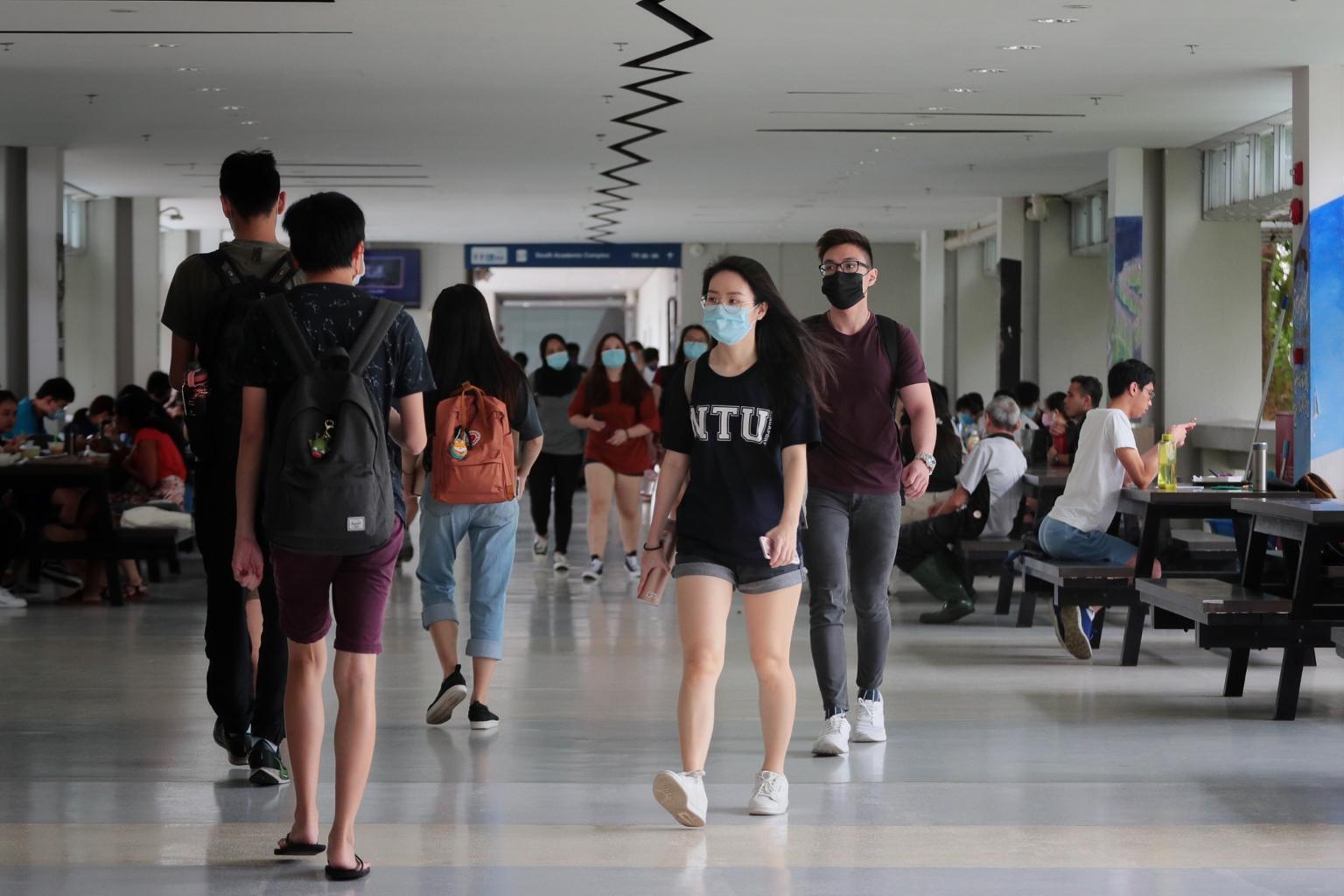Singapore's six universities admitted about 1,000 more students this year due to Covid-19 disruptions
Sign up now: Get tips on how to help your child succeed

Overall, the six autonomous universities admitted about 17,800 Singaporean students this year.
PHOTO: ST FILE
Follow topic:
SINGAPORE - Singapore's universities admitted about 1,000 more students this year than originally planned, making space for those whose plans to study overseas were disrupted by the Covid-19 pandemic.
This is similar to last year's measures, when 1,000 more students were admitted to the universities than originally planned.
These students had their university plans disrupted or were polytechnic diploma holders who were opting to study instead of work due to a weak job market.
On Friday (Oct 29), the Ministry of Education (MOE) said the places were offered to support students while maintaining admission standards to ensure a high quality of education.
Overall, the six autonomous universities admitted about 17,800 Singaporean students this year.
The autonomous institutions comprise the National University of Singapore, Nanyang Technological University, the Singapore Management University, the Singapore University of Social Sciences, the Singapore University of Technology and Design and the Singapore Institute of Technology.
MOE added that it will continue to monitor the global Covid-19 situation and its associated travel restrictions when it is accessing support measures for next year's batch of students.
Last year, the extra places pushed the total enrolment number in Singapore's universities to 17,500 students.
These students made up about 42 per cent of their cohort. It is a slightly higher rate than MOE's previously stated goal of a 40 per cent cohort participation rate in universities.
But cohort participation rate may not be the most important factor in MOE's future planning around university place numbers.
Former education minister Lawrence Wong said in an interview with The Straits Times in January that moving forward, the policy of planning for the numbers of university places based on cohort participation rates will become less relevant.
He said: "We have been talking about SkillsFuture and lifelong learning and opening up different university pathways, including combining work and study.
"So, there's no need to front-load four years of education before you go out to work. You can have a chance to get a university degree or further education any time, through your working life."

